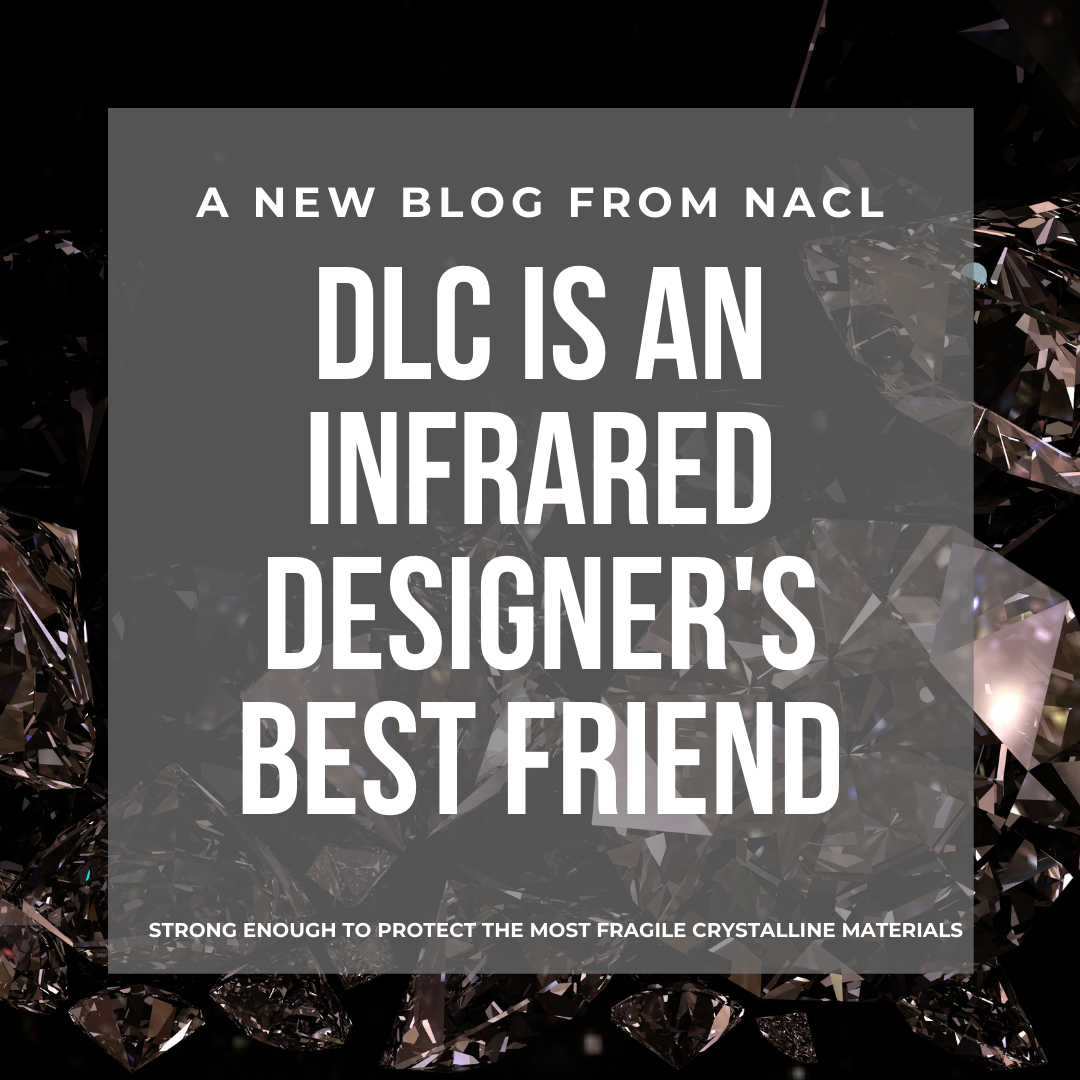Diamond-Like Carbon or DLC coating is an amorphous crystalline film that is conformably grown on a surface and has properties like that of a naturally occurring diamond. The film offers a low friction coefficient, is chemically inert which lends to high abrasion and corrosion resistance. One of the most unique properties of DLC is its optical performance in the infrared spectrum where it is commonly used as an anti-reflective coating.
Because DLC can be applied to relatively fragile crystalline materials such as Germanium, Zinc Selenide, Zinc Sulfide, and with Chalcogenide glasses it is very regularly specified as the outermost coating on these IR optical elements that are exposed to extremely harsh environments. Because DLC is deployed in applications where the physical environment is challenging, numerous tests are used to quantify how well a DLC coating performs. Among these tests are Adhesion, severe abrasion, sand slurry, humidity, salt solubility, salt fog, and water solubility which are included in the following military specifications: MIL-C-675, MIL-M-13508, MIL-M-14806, MIL-C-48497, MIL-F-48616, MIL-STD-810F.
DLC coatings do not perform optically as well as some custom multi-layer infrared anti-reflective coatings in the shortwave, mid-wave or longwave spectrum, but they can offer relatively good transmission >95% average and won’t hinder transmission when coupled with a high-efficiency infrared anti-reflective coating on the internal surface of the lens. Many times the optical elements used in these applications are of high cost, so some performance trade-off is acceptable in order to lower the cost of acquiring, maintaining and replacing these IR optical elements.
There are multiple ways to create a Diamond-Like Carbon coating via vacuum deposition. Some of the most popular deposition methods are Sputter Vapor Deposition, RF Discharge CVD, Plasma CVD, Sputtered Plasma CVD, Arc PVD and filtered Arc PVD among others. Each DLC deposition process has its own unique advantage that lends itself well to specific applications.
We’d love to chat more about your program and see if our coating solutions are a fit for your application. Please give us a call or send us an email so we can help you with your decision as to which process is most beneficial for your program.






